Besides being the world’s biggest country, Russia is home to vodka and hilarious YouTube videos. It also ranks as the ninth most populated nation, thanks to its 150 million residents. Though you need an invitation to enter the country, many tourists make the effort as they consider Russia as a must-go-to destination because of its rich cultural heritage.


Though it’s been in the news for all the wrong reasons lately, Russia has given the world breathtaking cathedrals, Pyotr Tchaikovsky’s iconic ballet, and the incredible literary works of Fyodor Dostoyevsky and Leo Tolstoy. On the internet, it is the source of many odd and entertaining things that can make you scratch your head and smile. Read on to learn more about President Vladimir Putin’s workout tape and other wild facts from Russia.
Russia Has A War-Inspired Theme Park
Kids aged 12-18 years old love visiting this Disneyland-like theme park filled with guns and tanks. This camp has even partnered with Disney to give patrons a fun-filled experience using sniper rifles, assault weapons, and bare-handed combat. Given recent developments in the world, this supposedly fun theme park takes on an ominous undertone.
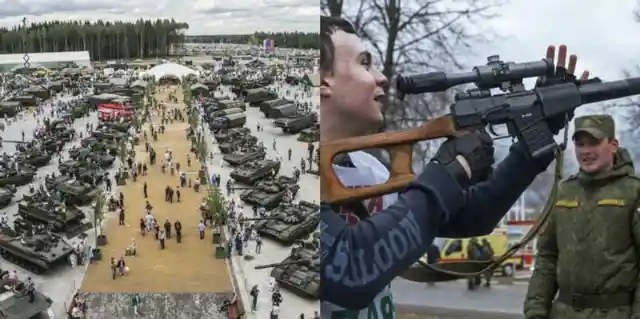

For Russians, learning should be like play. Children’s survival skills are sharpened every day because breakfast is not about sugary cereal but about smashing through obstacle courses. We just hope they stick to airsoft guns.
Dinner With Russian Twins
Only in Russia will you see a restaurant that has twins as its wait staff. Why? Because they can! Apparently, the idea of identical twins serving Russian food to customers was hatched by the owner after watching the movie Kingdom of Crooked Mirrors.


Located in Moscow, Russia’s capital, guests can expect good food at a great price that is also prepared and served by twins. Tourists flock to the diner because it is the only restaurant in the world that exclusively hires twins and has them serve guests in matching outfits.
Russia Has A Forest Of Dancing Trees
There is a special place in Russia that tourists and nature lovers consider their favorite. Situated in Rybachiy, at Kaliningrad Oblast, the area is filled with pine trees that seem to defy the laws of nature. Spiral-shaped pines and heart-like trees can be seen throughout the forest.


It is easy to believe that you are inside a fairytale when you are in the Dancing Forest. Before the place even had pine trees, the area was a gliding school used by Nazi Germany. After World War II, the trees decided to claim the place as their own. Scientists believe the trees were distorted by caterpillars, but locals argue that the forest was copying the movement of the sand.
Russia Has A Museum Of Vodka… Of Course!
Russia loves its vodka so much that it has erected two structures to celebrate its existence. The country’s national liquor is so adored that not one but two museums have been created in its honor.
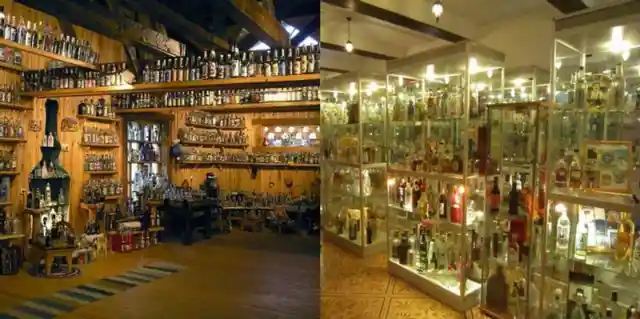
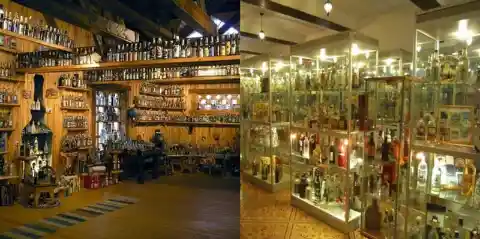
One museum is situated in St. Petersburg, and the other is in Moscow. The former exhibits vodka exclusively, while the latter takes visitors through the liquor’s history. Patrons have the choice to buy a basic ticket and explore the museum on their own. Alternatively, they can take a half-hour guided tour and pay full price while tasting various types of vodka.
Russia’s Cat Theater Is Ridiculously Entertaining
Just when you thought you’d seen it all, Russia comes along with a theater dedicated entirely to cat-based entertainment. Moscow loudly and proudly presents its one and only cat theater. It has been described as a circus show on drugs.
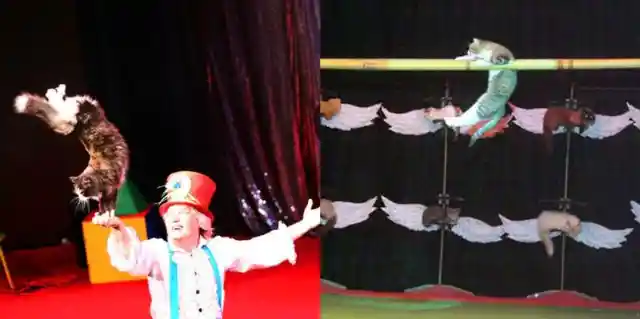
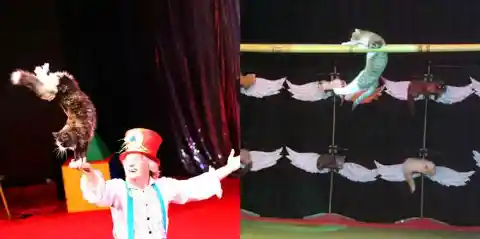
The Kuklachyov family owns the theater. They have so far earned millions of dollars because of the multitude of cats they have featured. Though some believe the show promotes animal cruelty, the cats seem to enjoy being in the spotlight. The show is perfect for kids, adults, and cat lovers alike.
The Mausoleum of Lenin
Never mind the morbidity of this post because Russia doesn’t seem to see it as an issue at all. Situated in Russia’s capital is the Red Square, where Lenin’s Tomb stands. The mausoleum is where the body of Russian communist revolutionary, Vladimir Lenin, lies.


Though millions of dollars have been spent by the country to preserve Lenin’s memory, a large number of Russian people believe that his body needs to be buried and laid to rest. Still, lots of tourists and locals frequent the mausoleum to visit the late leader.
There’s a Bubble Baba Adult Doll Challenge
Russia likes to have fun in its own unique way. For this event, they combined their love for swimming and adult dolls to create the one-of-a-kind Bubble Baba Challenge. Russians like the challenge so much they have been doing it for more than a decade.


The challenge involves a swimming race in the Vuoksi River. Contestants partner with inflatable adult dolls that allow them to float on the water. Men and women can join in as long as they are 16 or older.
The Batagaika Crater Looks Like A Door To The Underworld
Russia’s Batagaika crater is a large area situated in Siberia. It is within the vicinity of the Yana river, which is also referred to as the Batagaika, hence the crater’s name. It is a place that is scientifically important as it is home to permafrost.
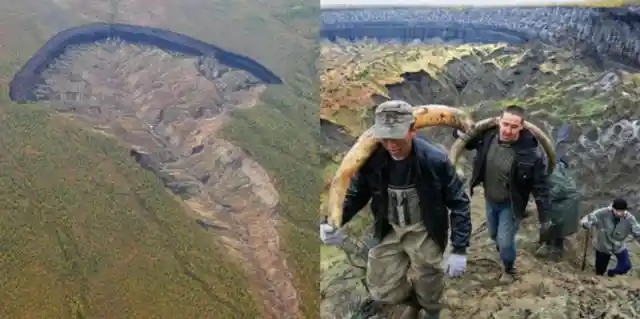

Though it currently measures a kilometer long, with a depth of 86 meters, its size seems to be consistently increasing each year. The crater reportedly formed in the 1960s because of deforestation, which is making the permafrost melt at a rapid rate.
Russia Has A Radioactive Lake
Russia is blessed with many natural wonders and majestic sights. It is easy to take in all the beauty its environment has to offer unless you are in central Russia’s Ural Mountains at Lake Karachay. Here, you must be careful not to breathe in the air because you will actually be inhaling radiation.


Lake Karachay is the dumping ground of Russia’s industrial and nuclear waste. It is so polluted that merely standing near it could cause death. Though attempts have been made to clear and remove toxic waste from the area, it will take decades (or longer) for it to have a chance of being declared safe. Civilians approaching the site need to wear special equipment to protect themselves against lethal radiation.
You Can See The Preserved Remains of Dashi-Dorzho Itigilov
Russia’s fascination with preserving the bodies of people who reflected its past glory is once again expressed in the case of the mummified body of Buddhist monk Dashi-Dorzho Itigilov. Though he died in 1927 during meditation, his body has remained in the same position as though he is still alive in some sense.


The monk’s remains appear lifelike and have only slightly decayed. His many followers believe he is not yet dead but is just in hibernation. So, his body has been moved to a Siberian museum to allow monks and tourists to see him and even shake his hand. His body is also monitored by CCTV.
Scary Sculptures Of Children
Located in the south of Moscow is an odd series of sculptures standing at Bolotnaya Square. The sculptures consist of two blindfolded children – one male and one female. Around them are thirteen strange-looking figures. The figures are said to represent adult vices such as drugs, alcohol, and prostitution, among others.


Locals have expressed displeasure with the sculptures and worry that children will find them scary. However, the artist who made the installation explained that his intention was to protect future generations of children by scaring them in a good way.
The Russian Arcade Game Museum
Russia makes sure it preserves everything it treasures by placing things in dedicated museums for all to see. This is evidenced by an arcade museum that was designed by college graduates in 2007. Initially, their goal was to play a Battleship-like game called “Sea Battle” to pass the time.


But when they realized that a lot of people also wanted to play, they collected more arcade machines. Eventually, they put up a museum in the dorm basement of their university, where 40 machines now stand. A second museum with 50 arcade machines was also built in St. Petersburg.
Yakutsk – Russia’s Ice City
The coldest city on the planet is in Russia. Yakutsk is an industrial city and is also the coldest on Earth. Its average temperature clocks in at -34 degrees centigrade during the months of winter. But its lowest recorded temperature is -64.4 °C.
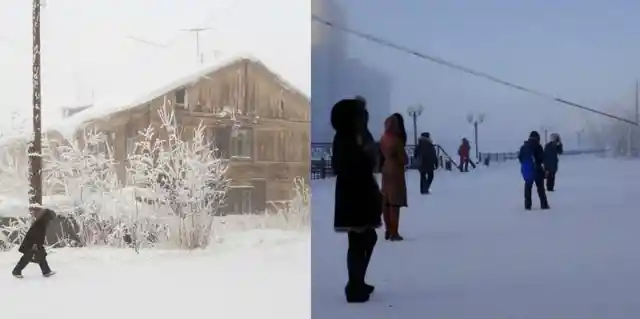

Despite the cold climate, 270,000 people reside in the area. Basic commodities and needs are also available such as public transportation and schools. If you have plans to visit, it is advised that you not stay too long.
All Religions Are Welcome in Russia
Russia is open and welcoming of all types of beliefs and religions. Whether one is Christian, Jewish, Muslim, or atheist, anyone and everyone can enter the Temple of All Religions. Built in 1992, the structure is at the center of Kazan and incorporates elements from the different religions of the world.
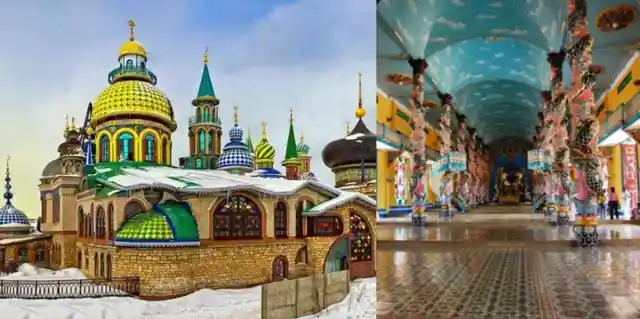

Its architect, Ildar Khanov, plans to add 16 more domes or cupolas. His goal is to make the temple a place where people from any religious affiliation can freely visit in peace. Besides building temples, Khanov also helps people suffering from alcoholism and drug addiction.
Russia Has A Chess City
If chess is your favorite game, Russia’s Elista city is the place to be. It features a spacious area where tons of tournaments and chess-related events take place. The city was converted to become a chess-friendly space by the president of the Republic of Kalmykia, who is an avid chess enthusiast. He is also the leader of the international chess organization.
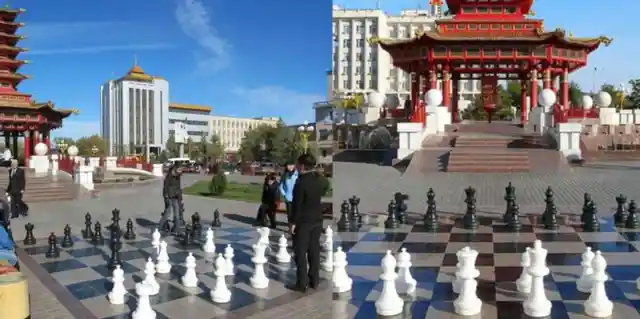
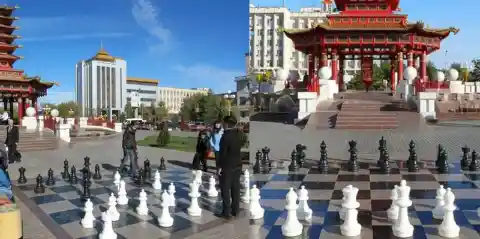
Oddly enough, locals criticized the decision to make the city a chess-friendly area. Approximately 300,000 of the country’s inhabitants believe that the city is too poor to afford such an unnecessary expense.
The Monument To End All Monuments
Russia’s priorities seem bizarre sometimes. It is not enough that they’ve made museums to honor an alcoholic beverage or the preserved cadavers of historical figures – Russia also built a monument for enemas.


A 2008 Reuters report featured a health spa located in Inozemtseva, Russia, that displayed cherubs carrying a plastic squeezy bulb-like object on their backs. A doctor from the health spa explained that the art installation was their way of expressing their sense of humor while also advertising the enemas they administer every day.
Russia Has A Special Baby-Making Holiday
Russia isn’t only about strict Soviet rule or dictators. Believe it or not, the country also has its gentle side. As proof, Ulyanovsk, Russia, made a special holiday to encourage locals to make babies. But wait, there’s more!


Locals not only get a day off, but they can also win prizes. Any woman who gives birth nine months after the baby-making holiday – September 12 – can win money, a refrigerator, or a car. The holiday was designed to encourage citizens to procreate as the region is one of the world’s most sparsely populated areas.
Russia’s Museum Of Hygiene
Russia decided to create a museum dedicated to the practice of good hygiene. Why? Because it can. Russians are more than happy to think up creative ways to make you scratch your head, and this museum is one of their best inventions yet.


It all started in 1877 when a health and hygiene exhibition was created. Fast forward four decades later, and the exhibition has morphed into a museum that features displays on infectious diseases, STDs, and a taxidermied version of Pavlov’s dog.
You Can Drink Juice Straight From A Tree
This drink is clearly not at par with vodka, but it fits the bill as a uniquely bizarre Russian beverage. Birch juice – “Beryozovy Sok” – comes from a birch tree’s sap and reportedly tastes like a diluted form of maple syrup.


It is mildly sweet and has been traditionally used for centuries in pagan rituals. Nowadays, it is being packaged and sold as a bottled and pasteurized drink in many parts of the world. But Russians believe that this watered-down commercialized version does not come close to the authentic stuff that they draw straight from the tree.
Shaking Hands While Wearing Gloves Was Once A No-No
This Russian custom clearly isn’t a problem during the summer when it is hot and balmy. Surely you do not want to wear gloves in high heat. But it can be a bit challenging come wintertime when you have to remove your gloves to shake people’s hands.
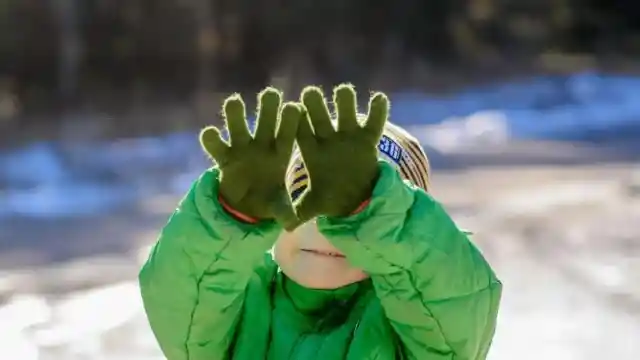
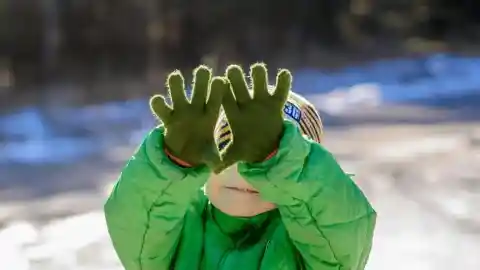
The Moscow Times stated that anyone who wears gloves when shaking hands is rude because it suggests that you’re too squeamish about touching the other person’s hand. We wonder if this custom has changed since the arrival of the pandemic.
Refusing A Drink Is Rude In Russia
Russia is the best place to be in when you want to have a valid excuse to get tipsy. The country likes vodka so much that they want others to love it too. So, they are often happy to offer people a drink. Once they do, it is rude to refuse.


If it would be unwise or unhealthy for you to touch any alcohol, you can always say “doctor’s orders,” and they will leave you be. But if you take them up on their offer, expect your glass to be limitlessly refilled until you become intoxicated.
It’s Bad Luck To Leave Empty Bottles On Tables
It is a fact that alcoholic beverages are bad for the liver. But some Russians are more concerned about the superstition that if you leave empty drink bottles on a table, it is a sign of impending suffering or grief.


To solve this problem, Russians do not refrain from drinking the last drop. Instead, they put the empty bottles on the floor. According to a 2013 poll, more than half of Russians are superstitious. So, you will often see empty bottles lined up on the floor. The only problem is that all the booze is still damaging their livers!
Never Crack a “Yo Mama” Joke In Russia
Russian humor is different from American humor. What’s considered funny in one nation might be offensive in the other. Nowhere is this more true than with “yo mama” jokes. It is best to avoid telling these jokes as an ice-breaker in Russia.
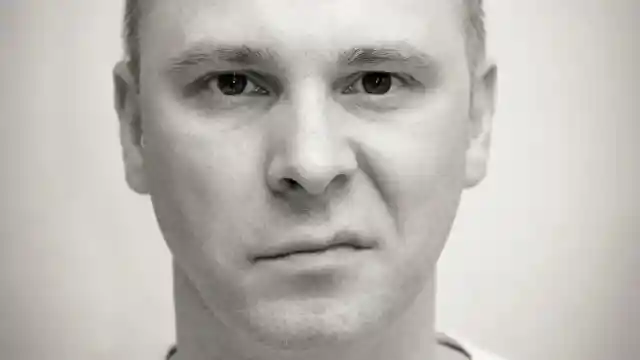

Russians hold their mothers and fathers in high esteem. They are very rarely amused by jokes about parental figures. Generally speaking, it is best to avoid telling potentially offensive jokes in Russia until you’ve developed an understanding of what people find funny and what they’re happy to joke about.
Babushkas Rule
Babushkas are elderly Russian women. They are revered in the country in the same way that saints are. Being a babushka is a title that grandmothers usually have and which they are not afraid to flaunt. It is a status symbol that many people understand and so accord them with the proper respect.
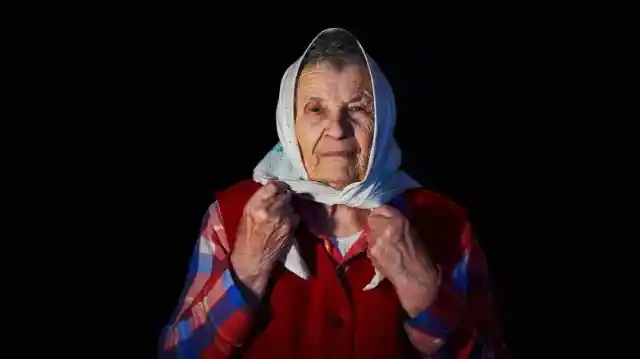

Once women reach a certain age in Russia and become babushkas, they are almost like a mild version of a mafia leader. They can shove anyone aside, cut in front of a line, and are not afraid to show everyone who’s the boss. Never cross a babushka if you want to have a good time in Russia!
Never Whistle Indoors
Despite Russia’s hard-nosed sensibilities and tough history, they are a very superstitious lot. They take many things seriously that others would find a tad unbelievable. An excellent example of this can be found in their beliefs around whistling.


In Russia, whistling indoors is frowned upon. Whenever someone whistles inside a house, it is believed that financial suffering will occur. The same applies when whistling in another person’s house. Financial ruin is set to fall not just on the whistler but the hosts.
Never Bring Yellow Flowers As A Gift
It is not solely in Russia that guests are required to bring a gift when invited to someone’s home. It is simply the polite thing to do. However, Russia has some unique and superstitious rules to which guests must adhere. Just like anywhere else, it is rude to bear nothing when invited as a guest. But only in Russia are you required to avoid yellow flowers.


Though food and drinks are allowed to be brought in, make sure these are something you would eat and drink yourself. Flowers are to be given to the woman of the house, but you must avoid giving yellow-colored flowers. In Russia, yellow flowers symbolize deceit and sadness – two things you don’t want to bring into someone’s house.
Always Lend A Helping Hand
It is customary in the West to let women carry heavy loads themselves. Some women believe that an offer of help is a suggestion that they are incapable of doing it on their own. However, Russia has a different stance when it comes to helping women lift heavy items.


Russian men believe it is their responsibility to aid any woman who is carrying something heavy. When in Russia, do not refuse any help offered. Accepting help does not mean you cannot do it yourself – it only means you are being polite.
There’s A Specific Way To Give And Receive Gifts
Though such scenes are mostly seen in sitcoms, it is a tradition in Russia to never accept any gift if it is offered only once. Only if the gift-giver insists twice, thrice, and many more times should one accept the offer.


Russians believe that a serious gift giver will insist that the recipient accept the offer after it has been refused more than once or twice. At that time, the recipient can accept the gift and confidently assume that the giver can genuinely afford to give the gift.
Political Criticism Isn’t A Good Idea
It is common for people in the West to be vocal about politics and government leaders. But Russia believes otherwise as locals consider themselves staunch patriots. Therefore, any criticisms hurled towards Russian politics are not encouraged.


Beliefs and opinions that openly find fault with Russia must be kept under wraps. Though citizens value honesty, they value their lives and families more. So, it is common for people to avoid saying anything that could result in harm coming to them or the ones they love most.
Shoes Should Not Be Worn Indoors
The Russian custom of leaving shoes outside the house is similar to the tradition of many Asian countries that never let shoes go inside the home. Walking into a house in Russia involves leaving your shoes in the hallway. These must never step into a room.


This tradition makes sense given the amount of germs shoes carry. Such items have stepped on dirt and grime you wouldn’t want to welcome into your house. Russians are also germaphobes. They wear slippers used exclusively inside the house, and most people keep spare pairs for guests. They even change into house clothes after being out for an entire day.
Be Careful Where You Sit On Public Transport
Just because you are using public transport in Russia does not mean you can freely take any empty seat you see. A lot of local city-dwellers use public transport and prefer to stand. Instead of resting their weary legs, they save the seats for the elderly, children, disabled people, or pregnant women.


It is rude for anyone to assume that they can easily take a seat just because there is space available. If you do not fall among the categories mentioned, it’s best to stand, grin, and bear it. That’s the Russian way of doing things.
In Russia, A Smile Must Be Earned
Russians do not smile a lot. In part, this is due to the cold, gloomy weather. Even if they have vodka keeping them happy on the inside, they often look quite serious on the outside. It’s important to understand that the general lack of smiles does not mean they are in a perpetually bad mood.


Essentially, Russians are selective smilers. They reserve their smiles for family, friends, and instances where there is a good reason to smile. For them, laughing or smiling for no valid reason is a sign of stupidity, and smiling at strangers is thought to be intrusive and rather rude.
Passports And Travel Documents Are Essential
Russia is a gorgeous country that has strict rules to keep things in order. Foreigners traveling to the country are required to have their passports with them. They should also expect to be stopped by Russian police from time to time to have their papers verified.
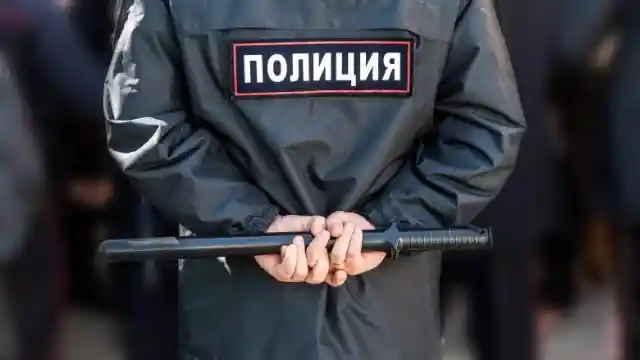
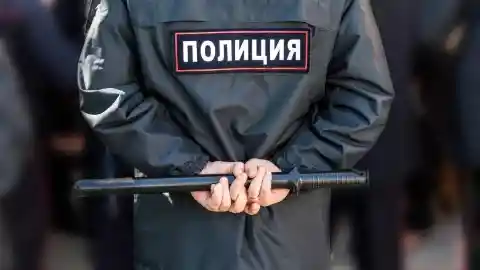
Non-locals can be profiled by Russian authorities and held for three hours while their identity is checked. To avoid any confusion and to ensure you are able to travel freely to any place you want – such as Vladimir Putin’s museum – it’s best to keep your passport with you at all times.
Russian Cats Can Predict Football Matches
Achilles is not like other cats. He is one of many felines found in St. Petersburg’s Hermitage Museum. Achilles is also able to predict the results of football matches. His divination powers have been tested consistently since 2017’s CAF Confederation Cup.
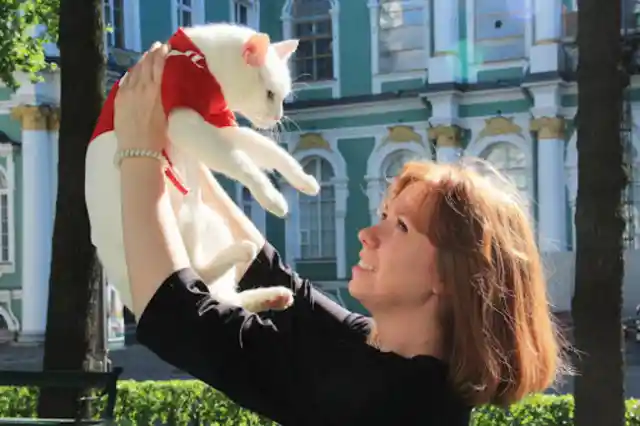
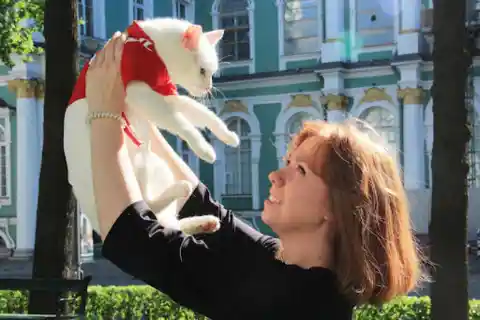
His psychic powers were tested anew when he was able to identify the winning team during the 2018 FIFA World Cup. The event was held in Russia, and Achilles accurately predicted the winning teams of the game’s first four matches by selecting among two food bowls carrying each team’s flag.
Russia Is Home To The Largest Squirrel Collection
Russians will never run out of things to collect. From vodka brands to arcade museums, this love of collecting things is a trait shared by many Russians. The Russian below has a one-of-a-kind selection that is so large it was included in the Guinness Book of World Records.


In 2013, Pavel Gerasimov’s squirrel collection exceeded 1,000 items. That number has certainly increased, but we can’t tell you the precise number. Figurines from the 1800s and squirrels of all shapes and sizes are part of his prized possession. One item is said to be made from pure gold.
There’s An Island Of Wooden Churches
Russia is full of incredible surprises. One of the islands located in Karelia, Lake Onega, is filled with wooden churches built during the 13th and 18th centuries. The Kizhi enclosure also holds a clock tower shaped like an octagon. The structures were created by carpenters who had a bold vision of a parish space that stood in harmony with the surrounding landscape.
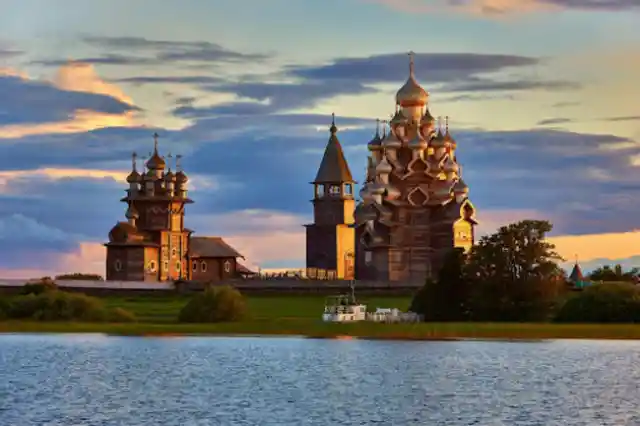
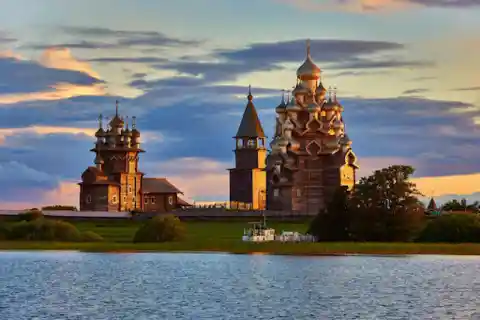
All the wooden churches were built without using any nails. The area has since been converted to an open-air museum. Meanwhile, the Kizhi enclosure is a UNESCO World Heritage site and boasts domes that are considered to be architectural masterpieces.
Russia Has An Impressively High Literacy Rate
Never underestimate Russian education. Despite their tendency to believe in superstition, the country’s school system has consistently been able to produce a 98% literacy rate. This is higher than other countries in Western Europe.
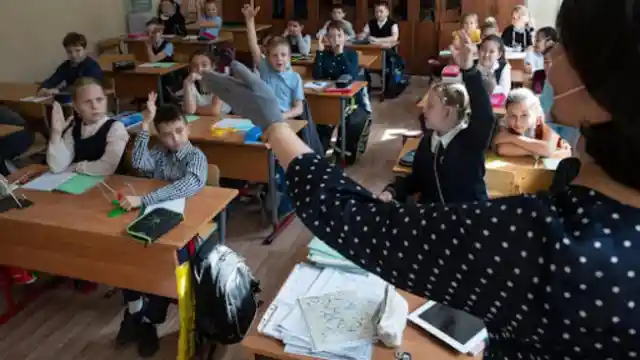

Russian kids go through school in primary, middle, and secondary stages. They generally start primary school at around the age of six, and this stage has four grades. They then do five years of middle school (also called “basic general” education), followed by two to three years of high school.
Russia Hosts a Festival For Mosquitoes
Mosquitoes are small insects that suck the blood out of their human and animal prey. Why Russians decided to honor them with a festival may be one of the world’s greatest unsolved mysteries.
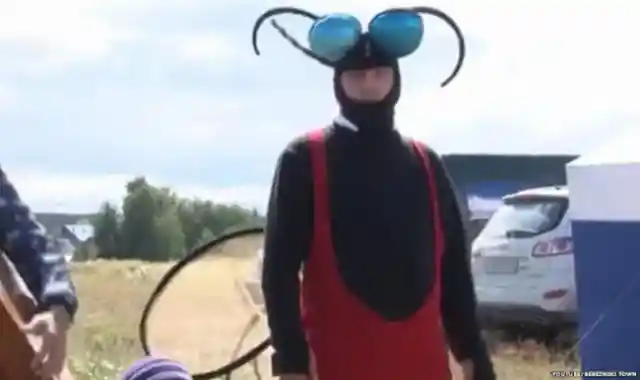

Though the Festival of Mosquitoes started as a joke, locals now take the celebration seriously. The inaugural 2016 event saw people stand in a line wearing shorts for twenty minutes while mosquitoes bit and sucked the blood from their bodies. The winner – the person with the most bites – was a nine-year-old girl. She was awarded the title of “tastiest girl” and honored for the rest of the festival.
Russia Has A Day Of Unpaid Work
Russia has managed to make unpaid labor look cool through Subbotnik – a day where people go to work for free. Initially a voluntary day, its purpose was to unite the masses and make socialism appealing to all.
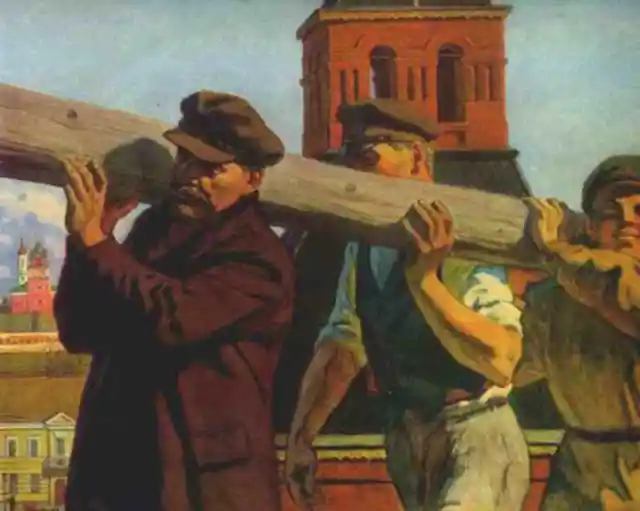
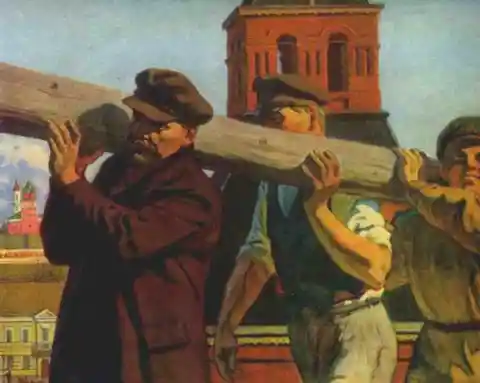
Eventually, people’s enthusiasm dwindled for obvious reasons – it’s a lot more appealing to be paid for the work you do! Everyone also thought the day was being used by the ruling class to exploit them. Nowadays, Subbotniks still occur, but they are once again voluntary. They involve people coming together to clean their community and help each other out.
You Can Touch The Lucky Bronze Dog
Superstitions are big in Russia. Anyone who wants to get lucky goes to the Ploshchad Revolyutsii metro station, where a sculpture of a bronze dog stands, waiting for its nose and toes to be touched.
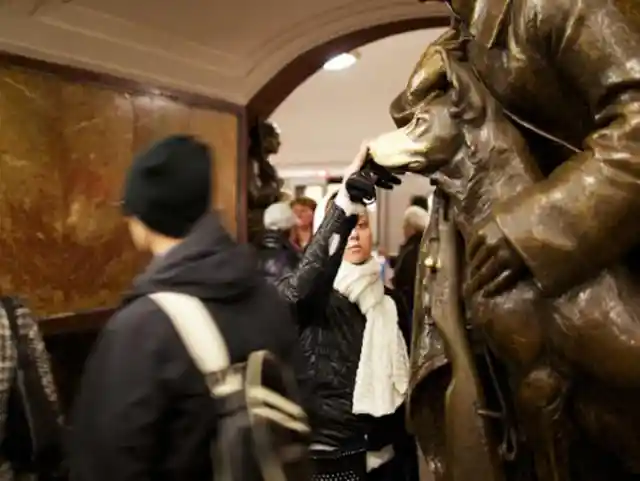
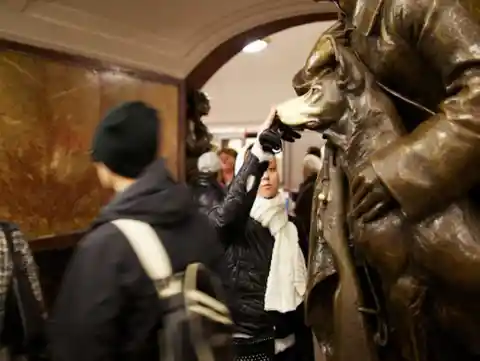
Locals believe that touching the statue’s shiny nose brings good luck. Students who want to pass their exams make sure they touch the dog’s nose or toes. As you can see from the picture, the dog’s “lucky nose” has been worn down by countless caresses from passersby.